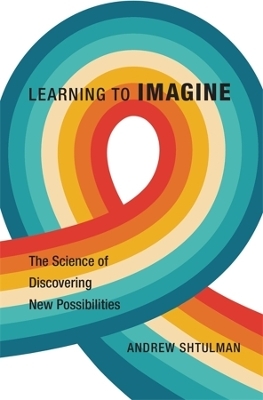
Learning to Imagine
The Science of Discovering New Possibilities
Seiten
2023
Harvard University Press (Verlag)
978-0-674-24817-5 (ISBN)
Harvard University Press (Verlag)
978-0-674-24817-5 (ISBN)
Imagination is thought to be the province of childhood—the stuff of free play and unrestrained ideas. Then comes the dull routine of adulthood, stifling creativity. In fact, the opposite is true. Andrew Shtulman shows that imagination is not inherited at birth, nor does it diminish with age. It grows as we do, through education and reflection.
An award-winning cognitive scientist offers a counterintuitive guide to cultivating imagination.
Imagination is commonly thought to be the special province of youth—the natural companion of free play and the unrestrained vistas of childhood. Then come the deadening routines and stifling regimentation of the adult world, dulling our imaginative powers. In fact, Andrew Shtulman argues, the opposite is true. Imagination is not something we inherit at birth, nor does it diminish with age. Instead, imagination grows as we do, through education and reflection.
The science of cognitive development shows that young children are wired to be imitators. When confronted with novel challenges, they struggle to think outside the box, and their creativity is rigidly constrained by what they deem probable, typical, or normal. Of course, children love to “play pretend,” but they are far more likely to simulate real life than to invent fantasy worlds of their own. And they generally prefer the mundane and the tried-and-true to the fanciful or the whimsical.
Children’s imaginations are not yet fully formed because they necessarily lack knowledge, and it is precisely knowledge of what is real that provides a foundation for contemplating what might be possible. The more we know, the farther our imaginations can roam. As Learning to Imagine demonstrates, the key to expanding the imagination is not forgetting what you know but learning something new. By building upon the examples of creative minds across diverse fields, from mathematics to religion, we can consciously develop our capacities for innovation and imagination at any age.
An award-winning cognitive scientist offers a counterintuitive guide to cultivating imagination.
Imagination is commonly thought to be the special province of youth—the natural companion of free play and the unrestrained vistas of childhood. Then come the deadening routines and stifling regimentation of the adult world, dulling our imaginative powers. In fact, Andrew Shtulman argues, the opposite is true. Imagination is not something we inherit at birth, nor does it diminish with age. Instead, imagination grows as we do, through education and reflection.
The science of cognitive development shows that young children are wired to be imitators. When confronted with novel challenges, they struggle to think outside the box, and their creativity is rigidly constrained by what they deem probable, typical, or normal. Of course, children love to “play pretend,” but they are far more likely to simulate real life than to invent fantasy worlds of their own. And they generally prefer the mundane and the tried-and-true to the fanciful or the whimsical.
Children’s imaginations are not yet fully formed because they necessarily lack knowledge, and it is precisely knowledge of what is real that provides a foundation for contemplating what might be possible. The more we know, the farther our imaginations can roam. As Learning to Imagine demonstrates, the key to expanding the imagination is not forgetting what you know but learning something new. By building upon the examples of creative minds across diverse fields, from mathematics to religion, we can consciously develop our capacities for innovation and imagination at any age.
Andrew Shtulman, the author of Scienceblind, is Professor of Psychology at Occidental College, where he directs the Thinking Lab. His award-winning research has been featured in the New York Times and the Wall Street Journal.
| Erscheinungsdatum | 26.10.2023 |
|---|---|
| Zusatzinfo | 6 photos, 19 illus. |
| Verlagsort | Cambridge, Mass |
| Sprache | englisch |
| Maße | 140 x 210 mm |
| Gewicht | 567 g |
| Themenwelt | Geisteswissenschaften ► Psychologie ► Allgemeine Psychologie |
| Geisteswissenschaften ► Psychologie ► Entwicklungspsychologie | |
| Geisteswissenschaften ► Psychologie ► Verhaltenstherapie | |
| ISBN-10 | 0-674-24817-1 / 0674248171 |
| ISBN-13 | 978-0-674-24817-5 / 9780674248175 |
| Zustand | Neuware |
| Informationen gemäß Produktsicherheitsverordnung (GPSR) | |
| Haben Sie eine Frage zum Produkt? |
Mehr entdecken
aus dem Bereich
aus dem Bereich
Techniken der Verhaltenstherapie
Buch (2024)
Julius Beltz GmbH & Co. KG (Verlag)
CHF 48,95


